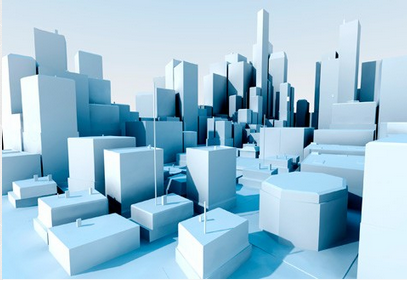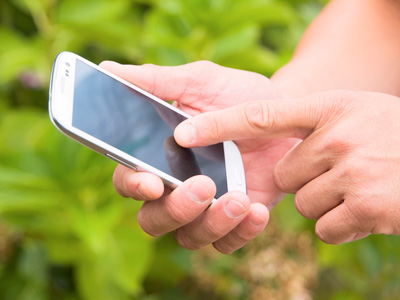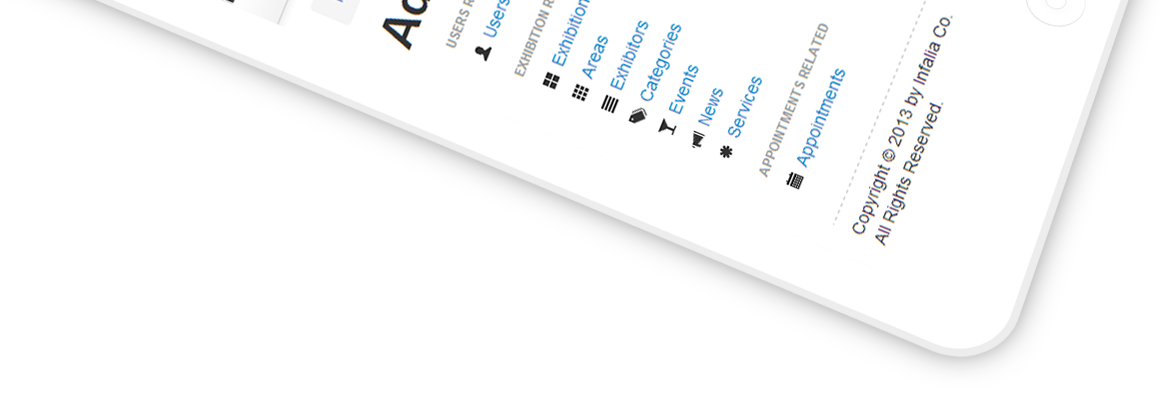 By 2030, more than 5 billion people will live in urban settings. Mashable says that before we get to that kind of population density, we have to optimize our cities. We need to make them smarter and better; technology can help. To improve urban living standards cities worldwide are encouraged to collaborate with technologists, to leverage big data and user generated content as welll as smartphones and social media penetration in every corner of the globe. Whether it is about reporting or creating a useful app, or waste management with high-tech initiatives apps and innovative technologies can help authorities save money and, be more efficient and encourage citizens to become more active and more empowered to participate in what shapes their everyday lives.
By 2030, more than 5 billion people will live in urban settings. Mashable says that before we get to that kind of population density, we have to optimize our cities. We need to make them smarter and better; technology can help. To improve urban living standards cities worldwide are encouraged to collaborate with technologists, to leverage big data and user generated content as welll as smartphones and social media penetration in every corner of the globe. Whether it is about reporting or creating a useful app, or waste management with high-tech initiatives apps and innovative technologies can help authorities save money and, be more efficient and encourage citizens to become more active and more empowered to participate in what shapes their everyday lives.
Cities around the world are facing a dual challenge of a growing population and climate change. To ensure that the cities of the future are safe and healthy places to live and work, smart city initiatives are being established globally.
Against the background of economic and technological changes caused by the globalization and the integration process, cities in Europe face the challenge of combining competitiveness and sustainable urban development simultaneously. Very evidently, this challenge is likely to have an impact on issues of Urban Quality such as housing, economy, culture, social and environmental conditions.
Ιn modern societies there is a growing requirement for public administrations to directly communicate with their citizens, view the existing problems from their perspective and re-act to their needs. In meeting this requirement, modern technologies has turned into a particularly valuable instrument that, apart from being a rich source of information, is also an integral part of our daily activities. Information needs to be facilitated to flow seamlessly between authorities and citizens so that the later become empowered to improve their city in collaboration with local administration.
What are the 25 Technologies that Every Smart City should have?
[via Mashable]
- Open-data initiatives and hackathons, like New York City's BigApps competition, which produce useful and resource-saving apps to improve cities and keep citizens informed. Things like air quality, restaurant sanitation scores, building inspection scores and impending legislation should be readily available for all citizens.
- Parking apps that show drivers where the nearest available parking spot it. These will save commuters time, gas, emissions and money, while also easing the flow of traffic.
- Apps that let users "adopt" city property — trash cans, call boxes, trees, fire hydrants, etc. — so the city doesn't have to spend money sending personnel to tend to them. Boston and Honolulu already have something similar in place, through Code for America, and these projects make citizens feel more invested in their neighborhood.
- High-tech waste management systems. Pay As You Throw (PAYT) garbage disposal would encourage people to recycle more and waste less, while using tools like RFID could improve sorting so recyclable plastic bottles don't end up in landfills.
- All-digital and easy-to-use parking payment systems — think EZ-pass for parking. We don't want to put receipts on the dashboard or be confined to time limits that make us run out to put more coins in the meter (if you're going to keep money meters, at least let us add money via an app). It's fine that you charge for parking, but improve the system.
- A city guide app, with information about museums, parks, landmarks, public art, restaurants and real-time traffic data. These apps, like the ones in Baltimore, Ottawa, Charlotte and New Orleans, help citizens and tourists alike improve their experience in the city.
- Touchscreens around the city — whether it's a kiosk to buy a MetroCard or the TVs in taxis — should be bacteria-resistant.
- Wi-Fi in subway stations and on trains, along with weather information at every station.
- Sustainable and energy efficient residential and commercial real estate.
- Dynamic kiosks that display real-time information, concerning traffic, weather and local news, like Urbanflow in Helsinki.
- App or social media-based emergency alert and crisis response systems — every citizen should
 have access to vital information. Whether it's an alert about a crime that just happened or advice for a storm approaching the city.
have access to vital information. Whether it's an alert about a crime that just happened or advice for a storm approaching the city. - Police forces that use real-time data to monitor and prevent crime.
- More public transit, high-speed trains, and bus rapid transit (BRT) to help citizens traverse the city with speed and low emissions.
- OLED lights and surveillance in high-crime zones, like the 24/7 system coming to Kolkata
- Charging stations, like the solar-powered Strawberry Tree in Serbia. They also function as bus stops and Wi-Fi hot spots.
- Roofs covered with solar panels or gardens. You could even generate solar energy on bike paths, like Amsterdam's SolaRoad.
- Bike-sharing programs, like in Paris, Washington, D.C., and the ones coming to Los Angelesand New York.
And bike parking would be nice, too — maybe even underground and machine-driven, like the Eco Cycle in Japan. - A sharing economy, instead of a buying economy. If we share or rent from each other, we each need to buy and store fewer goods — think Rent the Runway, Netflix, Airbnb. On a similar note, there should be apps to help you find charities that actually need the stuff you want to toss, such as Zealous Good in Chicago.
- Smart climate control systems in homes and businesses.
- Widespread use of traffic rerouting apps, such as Greenway and Waze. The average person spends 60 hours in traffic each year, according to Greenway; these apps calculate the best route for each driver to speed up traffic flow and reduce CO2 emissions. They also ensure that a traffic jam on one boulevard doesn't just get displaced to another area.
- Water-recycling systems, because while water covers 70% of the earth, we're not preserving the resource the way we should.
- Crowdsourced urban planning.
- Broadband Internet access for all citizens — maybe Google Fiber? — which will reduce the digital divide and spur economic growth.
- Mobile payments. Everywhere. For food, apparel and public transportation.
- Ride-sharing programs: Because it's a waste of money and gas to have two cars go the same place when neither is filled to capacity.






